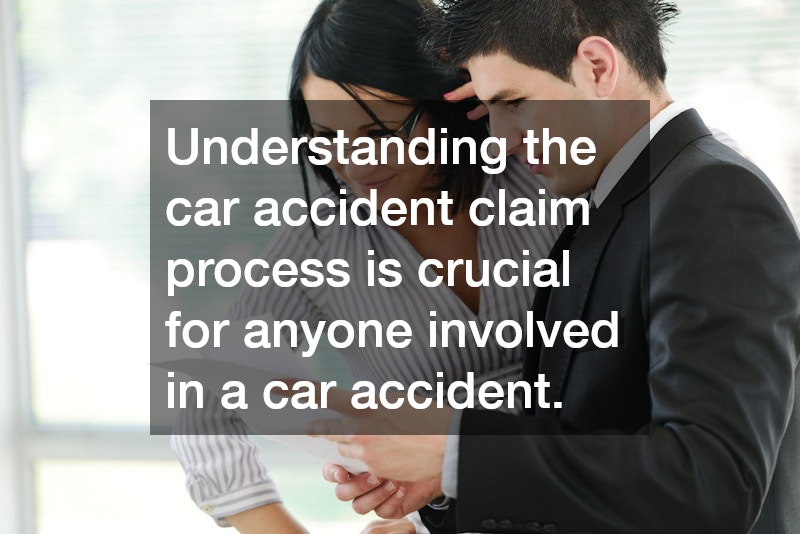Understanding the car accident claim process is crucial for anyone involved in a car accident. This article will guide you through the key aspects to be aware of, so you can navigate the process efficiently. Consulting with a car accident lawyer can also provide specific advice tailored to your individual circumstances.
1. What Should You Do Immediately After a Car Accident?
1.1 Gather Necessary Information and Evidence
Immediately after a car accident, collecting all of the necessary contact details and insurance information is of utmost importance. This step ensures that all parties can communicate effectively and follow up with the proper procedures.
Additionally, capturing photographic evidence at the scene can significantly support your case during the claim process.
Photos can reveal the extent of damage to vehicles and surroundings, providing a factual basis for claims. Ensure that you also take pictures of any visible injuries sustained, as this will be valuable later. This tangible evidence can serve as an impartial witness to the events that transpired.
1.2 Notify Law Enforcement and Your Insurance Company
Reporting the accident to law enforcement is an essential step in the aftermath. A police report not only documents the incident officially but also can be a critical piece of evidence in insurance claims and potential legal actions. Prompt contact with law enforcement helps ensure that all factual data surrounding the accident is collected accurately.
Equally important is contacting your insurance company without delay. This notification can expedite the claims process, allowing for quicker investigations and settlements. Insurance policies often have time limits to report a claim, and failing to report promptly could impact the outcome of your claim.
1.3 Seek Medical Attention
Seeking medical attention immediately after an accident is crucial, even if injuries appear minor. A comprehensive medical examination can uncover internal injuries not immediately apparent, such as whiplash or concussions. These injuries can have delayed symptoms and may worsen if not treated promptly.
Documenting all medical evaluations is also vital for insurance claims and any subsequent legal actions. Accurate medical records will support your claims for compensation related to injury treatments and recovery costs. Incomplete medical documentation can result in disputed claims or lesser settlements.
2. How Does the Car Accident Claim Process Work?
2.1 Filing the Claim
The first step in the car accident claim process is filing a claim with your insurance company. This involves providing essential information, such as the date, time, and location of the accident. Additionally, policy numbers, vehicle details, and descriptions of the incident are commonly required.
Claims typically require detailed accounts of how the accident occurred, accompanied by supporting documentation like the police report. Insurance companies may offer online forms or hotlines to facilitate the submission of claims. These processes aim to streamline the filing, expediting the resolution and reducing stress on the involved parties.
2.2 Claim Investigation
After filing a claim, the insurance company will launch an investigation to validate your claim. This process includes gathering statements from involved parties, witnesses, and law enforcement. Investigation is a standard procedure to ascertain the extent of damages and liability.
Insurance adjusters evaluate damages through inspections of vehicle conditions and assessments of any injuries. They may visit the accident scene or employ third-party investigators for comprehensive evaluations. Understanding this process ensures you comply with requests and expedite settlement procedures.
2.3 Settlement Negotiations
Settlement negotiations follow the completion of the investigation, where the insurance company offers a compensation amount. Several factors, such as liability, the extent of damages, and insurance policy limits, can influence this offer. It’s essential to evaluate whether the offered settlement is fair and adequate for your needs.
Consider consulting a car accident lawyer to assess the validity of settlement offers. Legal professionals can provide insight into whether the compensation aligns with damages incurred and future financial needs. They can also guide you through counteroffers or any necessary disputes.
In conclusion, knowing these key aspects of the car accident claim process can help you manage your situation effectively, ensuring you are well-prepared to handle the aftermath of an accident. From gathering evidence to understanding settlements, each step contributes to a comprehensive resolution. Always seek professional advice if you are unsure of any steps in the process.
.




